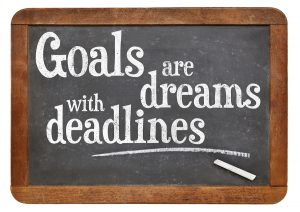When you want to get ahead at work, it can be challenging to know exactly what to do. Most people think that if you just work harder, then your effort will result in a promotion.
Below is Rebecca’s story in her pursuit to get ahead.
Rebecca had no desire to leave her job, she wanted to get promoted in her current position. In her words, she’d been doing “everything” that was asked of her, but no one noticed her efforts, let alone rewarded them.
Meanwhile, some of her peers were flying past her with promotions and raises.
What was the problem with Rebecca, and how was she going to get ahead?
Rebecca enlisted some help by asking HR to refer a mentor. After a few coaching sessions from her mentor, they identified that Rebecca was not connecting with management. The company she worked for was small and casual, but Rebecca shied away from engaging her senior leadership.
How could Rebecca ever convince her leadership that she cared about the business if she wouldn’t make any effort to interact with them?
The reality is that the people who get promoted are doing more than just getting the work done. Studies show that how we value an employee’s competence changes according to how much we like or dislike that person.

In other words, being really good at your job isn’t enough.
For an employee to stand out, being likeable is a huge indicator for success. The good news is that the biggest hindrance to likeability is apathy. The good news is that if you are like Rebecca, you can change how others perceive you simply by making the choice to care about other people.
Here are 7 steps you can implement immediately regardless of your circumstances that will put you back on the promotion path, where you belong:
- Take initiative
Volunteer for assignments. Are there any tasks that have been lingering on your boss’ to-do list for a few weeks? A great way to get noticed is by taking on a project that no one wants to tackle, but that has to get done.
- Connect with everyone
People who get big things done are people who know people, but the Rebecca’s of the world have a tendency to think that inter-office relationship building is too time-consuming and draining to be worthwhile.
Every aspect of your professional life will improve if you get to know your colleagues and making them feel comfortable getting to know you. This can be challenging if you are introverted. Push through this and connect with people one-by-one. Once you’ve broken the ice, you won’t feel nearly as uncomfortable about initiating a conversation in the elevator.
- Participate in the office’s extracurricular activities.
Work hard and enjoy your job too if you want to get ahead at work. Participate in the company’s fundraising walk or bake sale. Whatever your organization is doing, participate and do #2, connect.
For the extroverts that love to socialize and party, when it comes to office events, never put more effort into your social persona than you’re putting into your professional persona.
- Accomplish the organization’s goal
Every organization has a bottom line or a mission, and if you’re bringing in new business opportunities, you will always be seen as an asset. It doesn’t matter if you’ve been hired for marketing; it’s all about contributing in a bigger way. This doesn’t mean you need to be a walking billboard for your employer, but you should maintain a keen awareness of the opportunities that surround you, whether you’re in a coffee line or a board meeting.
Whatever your organization’s mission is, make sure you are working toward its achievement.
- Be a team player
Look for ways to collaborate and work in harmony. Bring your strengths to projects and assignments. Accept and embrace the diversity of talent within your team. Everyone won’t see things the way you do. That’s ok. Learn to work in diverse teams.
You don’t need to be a martyr of self-sacrifice by staying late every single night to do someone else’s work, but stepping up without expecting any personal benefit will never go unnoticed or unappreciated.
- Steer clear of negativity
Negativity is highly toxic. No one really wants to hear it, especially senior leaders. Focus on being helpful and solving problems not causing problems.
- Speak up.
Toastmasters is a great way to learn and practice your speaking skills.
Side note: Most of the interviews I’ve been on, the interviewer normally asks me about Toastmasters. It has given me a leg up.
Make sure you practice speaking well. If you struggle with grammar, improve. Take a class. If you are shy and/or introverted, practice speaking up. Make sure when you speak, you are not covering your mouth by resting your chin on your hand. Sit up straight and project your voice.
Back to Rebecca, over the course of a few months, Rebecca started to realize that having a voice in the workforce is like a muscle that grows stronger with frequent use. With each step forward, her self-consciousness loosened its grip and she became confident about seizing opportunities. She felt empowered to step up, regardless of whether it was to run a meeting or populate the spreadsheet.
The standout employees are the ones who behave like leaders, even when their title is Intern. The irony is that when you’re more focused on the results than the promotion, your title will change faster than you can even imagine. This is how you get ahead at work.
If you don’t believe me, guess who’s now managing her company’s brand new office in London?
That would be—you guessed it—Rebecca!






